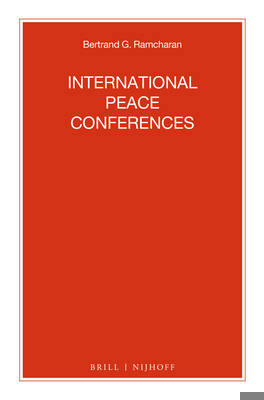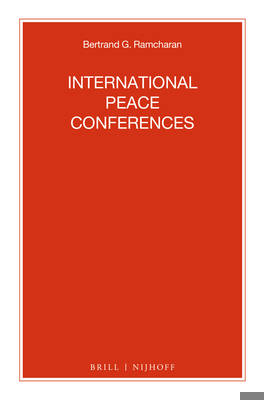
Je cadeautjes zeker op tijd in huis hebben voor de feestdagen? Kom langs in onze winkels en vind het perfecte geschenk!
- Afhalen na 1 uur in een winkel met voorraad
- Gratis thuislevering in België vanaf € 30
- Ruim aanbod met 7 miljoen producten
Je cadeautjes zeker op tijd in huis hebben voor de feestdagen? Kom langs in onze winkels en vind het perfecte geschenk!
- Afhalen na 1 uur in een winkel met voorraad
- Gratis thuislevering in België vanaf € 30
- Ruim aanbod met 7 miljoen producten
Zoeken
Omschrijving
This book has emerged out of the author's experience as Director of an innovative peacemaking, peacekeeping and humanitarian initiative, the International Conference on the Former Yugoslavia, between 1992 and 1996. What was striking about this conference was the experiment of two full-time Co-Chairmen, one from the United Nations and one from the European Union, who laboured tirelessly for peace in different parts of the former Yugoslavia for three and a half years. The strategies and organization of the conference had to be pieced together from the start by the Co-Chairmen and their colleagues; only in retrospect could the question whether there might have been experiences of international peace conferences that might have been useful at the beginning of this process be reviewed. This research is contained in Part One of this book, which offers a review of the role of international peace conferences in history. Part Two contains a case study of the strategies and experiences of the International Conference on the Former Yugoslavia.
Specificaties
Betrokkenen
- Auteur(s):
- Uitgeverij:
Inhoud
- Aantal bladzijden:
- 288
- Taal:
- Engels
- Reeks:
- Reeksnummer:
- nr. 86
Eigenschappen
- Productcode (EAN):
- 9789004245891
- Verschijningsdatum:
- 1/12/2014
- Uitvoering:
- Paperback
- Formaat:
- Trade paperback (VS)
- Afmetingen:
- 155 mm x 234 mm
- Gewicht:
- 439 g

Alleen bij Standaard Boekhandel
+ 536 punten op je klantenkaart van Standaard Boekhandel
Beoordelingen
We publiceren alleen reviews die voldoen aan de voorwaarden voor reviews. Bekijk onze voorwaarden voor reviews.









